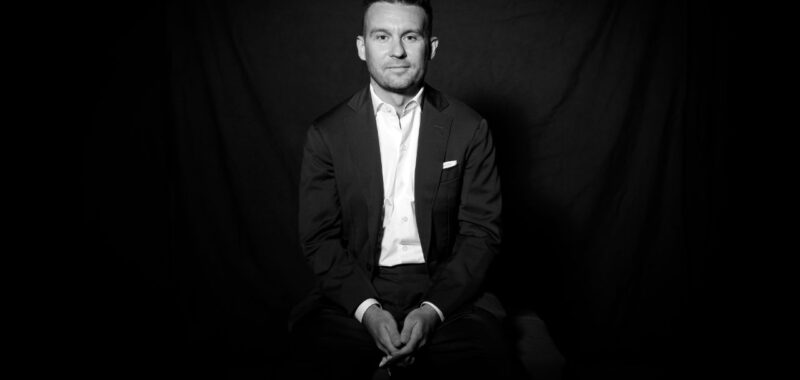When it comes to winning listings, BresicWhitney CEO Thomas McGlynn doesn’t believe in “winging it.” In fact, he’s convinced the real work starts long before you sit down with a potential vendor.
“To me, I believe the listing presentation starts when you first meet the client,” he says.
“That might be when they haven’t decided they’re going to sell yet. You might meet someone at an open for inspection, and the way that you communicate and engage with that person in the community really impacts your ability to win that business.”
It’s a perspective shaped by experience, and one that reframes the listing presentation not as a single appointment, but a process with three distinct phases: before, during and after.
“What are you doing before you go out? What are you doing when you are at the property with the client? And then what are you doing post listing presentation?” Thomas asks.
“Because one thing we know also is that in real estate we are very, very good at telling stories. But a lot of the time we then don’t back it up with action.”
For Thomas, it’s the pre-work that often separates a decent agent from a trusted advisor. He encourages agents to come armed with detailed questions about the client’s timeframe, past sales experience, whether they’ve renovated, and what outcome they’re hoping for.
This, he says, not only helps tailor the presentation, but shows genuine care.
“Winging it is not a strategy when going out to potentially try and convince someone that you are the right agent for them.”
First and foremost, Thomas believes that being present and prepared makes a significant difference.
“We owe it to our clients and our potential clients to show respect … they are allowing us into their personal space.”
This principle applies equally to selling investment properties, which he says can carry deep personal meaning.
“For someone to own an investment property, it means that they worked really hard in their life and selling that investment property, you know, that might be a big thing to them.”
Another common misstep? Sounding exactly like everyone else.
“That’s a big challenge in our industry at the moment,” Thomas says. “A lot of the time, everyone sounds exactly the same as one another. The only difference is the brand and their own personality.”
To stand out, Thomas suggests agents should clearly articulate their personal value – something many struggle to do.
“If I was to ask an agent, ‘Can you tell me right now within the space of a couple of minutes why I should use you?’, most agents couldn’t answer that.
“Sometimes you only get a few minutes to make a first impression. You need to be ready to show why you’re the one who can make the biggest difference.”
One way to achieve this is by tailoring your approach. Thomas encourages agents to adapt their conversations depending on whether the client is a downsizer, investor, or first-time seller.
“Some clients are really detail orientated. Some clients are not detail orientated. They’re looking for a transference of feeling. They’re looking for someone that they can engage with.”
This is why the pre-list phase is so crucial. Thomas encourages agents to use that time to ask better questions, not only to qualify the client but to understand their mindset.
“The better the questions, the better informed you are with how to approach the situation with the client,” he explains.
“And a good example of that could be that so many agents go in really strong and spend so much time trying to defend their fee. Sometimes the client already knows that you are worth that. And that’s not important to the client.”
He also emphasises storytelling, (not just stats), can be incredibly effective, depending on the client.
“I do believe that people take comfort in hearing certain situations that have unfolded for properties or clients that have been similar to them. And I think the ability to be able to talk through case studies and past experience—whether or not it’s your own personal past experiences, your company’s past experience, one of your colleagues’ experiences—I think the ability to be able to talk through case studies is really, really important.”
And once you’ve walked out of the appointment, the job isn’t done.
“You can nail the first bit, the second bit, and then really let yourself down in the third bit,” Thomas warns.
“The way that you follow someone up, not just with a generic ‘just touching base’, but with something that shows you’ve thought deeply about their sale, can be the difference between you winning it and not winning it.”
That follow-up, he adds, needs to feel genuine. “I just want to let you know, I’ve been thinking about your property and the opportunity to sell it a lot, and there’s a few other things that I think that I can bring to the table. I’m going to follow you up with a list of those things that I think we can do in an email, and I just wanted to check in.”
Ultimately, Thomas believes the best agents don’t just present: they plan.
“You don’t want to overstay your welcome to a point that they feel that, you know, you might lack a bit of energy or that it’s got to a point where it’s uncomfortable.”
Instead, let the client guide the rhythm.
“There’s a number of things that we’d love to go through today and I’m hoping to touch on these things. Firstly, can I ask how long have we got? And is there anything other than what I have just discussed that is important to you?”

